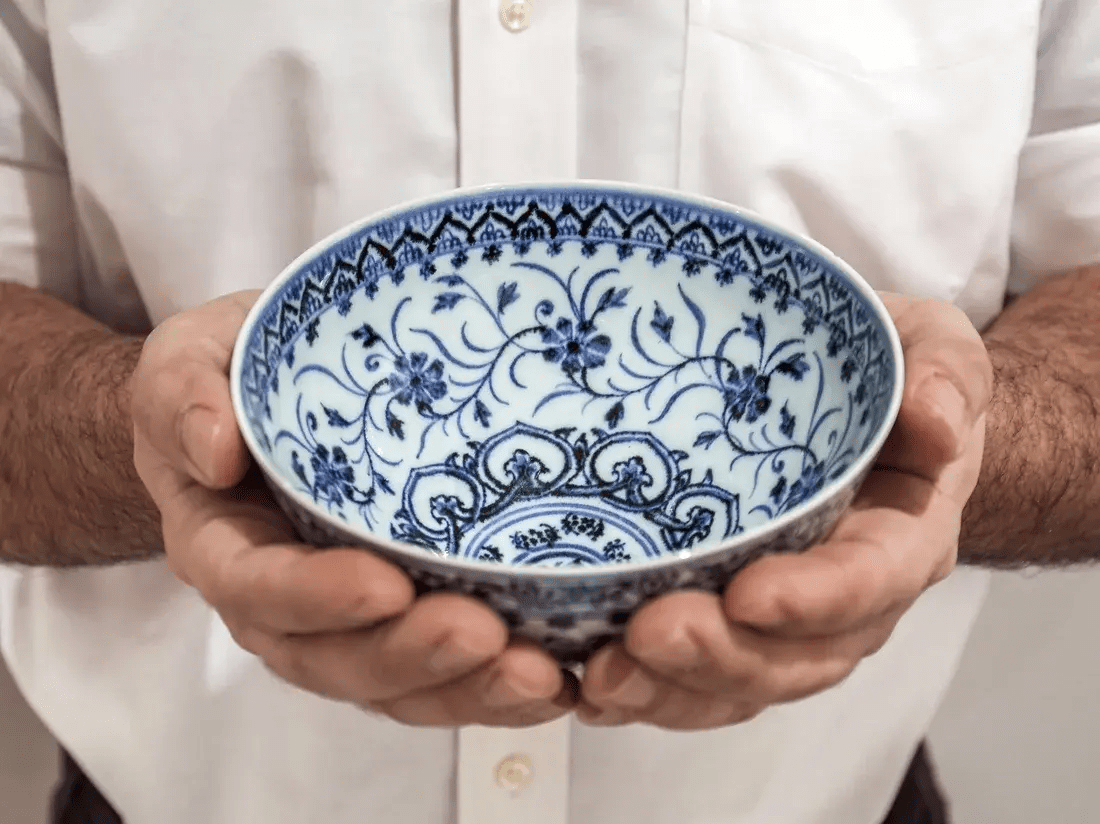What Is Our Worth? by Rob Haynes

I am often fascinated with stories of people who unknowingly purchase rare and valuable items at a second-hand sale. A small bowl bought for just $35 at a sale in the US State of Connecticut has turned out to be a rare 15th-Century Chinese artefact from the Ming Dynasty. It was one of only seven such bowls ever made and was worth nearly one-half million dollars.
How exactly the bowl found itself being sold at a Connecticut outdoor sale remains a mystery. To the average person, the untrained eye, any object appears to be normal, unexceptional. That’s because all we can do is look at the outside. What is presented before me? What do I know of my very short encounter with it. I make value judgments on what is seen, not what is unseen. However, to the authority, the expert, to the one who knows the object better, it is of great worth. So much so, that it would be considered to have value beyond measure.
This is just an echo of what James is trying to convey to his hearers, and to us, in James 2:1-13. In this passage, some people are looking at others and deciding their value based upon external appearances. James writes to a gathering of Christians who encounter struggles in their society that favors some people of wealth and certain ethnicities. The culture represses the outsiders and these habits are seeping into the young church.
To put it in a scenario that might happen today: Someone with fancy jewelry and expensive clothes is greeted warmly by the ushers at the door on a Sunday morning. They say, “Hey, right this way. Sit on the front row so we can show you off to everyone.” And the wealthy person is thinking “Good. That’s where I wanted to be—where everyone can see me.” And the ushers walk away saying, “Wow, I can’t wait to see what he puts in the plate!”
They go back to the door to greet someone else. This time, it is someone with poor clothes, maybe they are dirty, a little smelly. The ushers say, “You go sit in the back, over in the corner. As a matter of fact, pull up a piece of the floor and sit there.” James points out that they have a case of spiritual nearsightedness. One person arrives late because he wants to be seen by everyone. The other one arrives late because she does NOT want to be seen by everyone.
We forget that the people we see before us are more than what we see on the outside. Verse 4 tells us that this sort of favoritism, discrimination is from our own motives, and James points out that this is not of God. Rather, it is evil. He says that when we make distinctions, we are operating not in God’s direction, but our own. We are judging when it is up to God to be the judge.
Jesus gave us what many call the Golden Rule: “Do unto others as you would have them do unto you.” (Matthew 7:12; Luke 6:31) Too often, we have accepted the corrupted version of that: “The one who has the gold sets the rules.” In our culture, we look too much to celebrity status or fame to give us our direction. The culture may look to someone who has made lots of money, and think their value is more than another’s. Or maybe is the one who can hit the ball the furthest, score the most goals, entertain me the most, and so on.
One problem with this sort of thinking is that all of those things are fleeting. They will not last. Another problem is that we might get the idea that our own value is less than another’s if we do not have one of those attributes that the culture values. These are not the ways that God sees us.
In God’s eyes, our worth is not in our abilities or esteem that the culture values. Our worth is not in our performance or ability to look presentable before others. God didn’t start loving you when you got your act together. God doesn’t stop loving you when you feel like you’re coming apart at the seams. God’s love for you isn’t based on your perception of your performance for him. He simply, completely, undeniably, and extravagantly loves you. If you feel like you’re found in a museum or a second-hand sale, it doesn’t matter. Embrace the extravagant offer that Christ makes to each of us to find our worth in him.
Subscribe
Get articles about mission, evangelism, leadership, discipleship and prayer delivered directly to your inbox – for free




